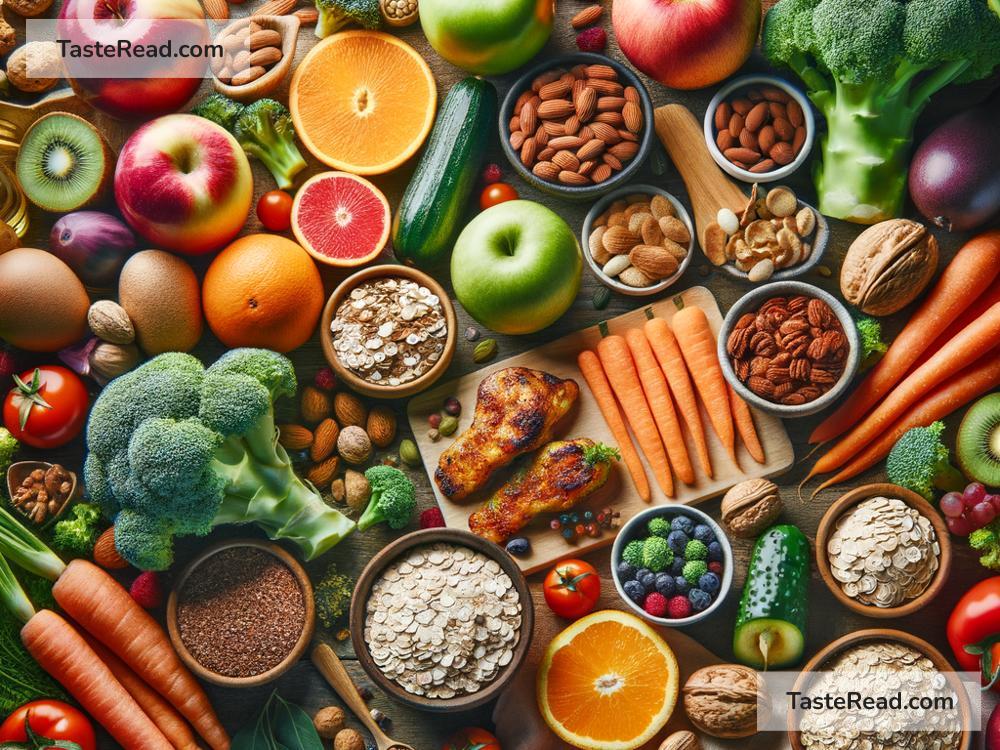Exploring the Benefits of Eating Nutrient-Rich Foods
When it comes to staying healthy, what we eat plays a big role. Food isn’t just about satisfying hunger or enjoying delicious flavors—it’s also about giving our bodies the energy and nutrients we need to feel good and stay strong. Eating nutrient-rich foods is one of the best choices we can make for our health. Let’s explore what nutrient-rich foods are, why they’re so important, and how you can include them in your daily meals.
What Are Nutrient-Rich Foods?
Nutrient-rich foods are packed with vitamins, minerals, antioxidants, fiber, and other essential nutrients, while typically being low in unhealthy fats, sugars, and empty calories. These foods give your body the tools it needs to function properly, repair itself, and fight off illnesses.
Examples of nutrient-rich foods include:
– Fruits and vegetables like spinach, kale, berries, oranges, and broccoli.
– Whole grains such as quinoa, brown rice, and oats.
– Protein-rich foods like eggs, chicken, fish, beans, nuts, and seeds.
– Dairy products like milk, yogurt, and cheese (especially low-fat options).
– Healthy fats from sources like avocados, olive oil, and nuts.
By focusing on these foods, we can keep our bodies strong, our minds sharp, and our energy levels high.
Why Are Nutrient-Rich Foods Important?
Nutrient-rich foods provide countless benefits for your body and mind. Here are some key reasons to include them in your diet:
1. Energy for Daily Life
Our bodies need energy to carry out tasks like working, exercising, and even thinking. Nutrient-rich foods are great sources of energy because they give you carbohydrates, healthy fats, and proteins—the building blocks of energy. Unlike sugary snacks that give you quick energy but leave you tired soon after, these foods provide steady energy that lasts throughout the day.
2. Better Immunity
Your immune system protects you from getting sick. To keep it strong, you need nutrients like vitamins C and E, zinc, and antioxidants. Foods like oranges, spinach, nuts, and seeds boost your immunity and help your body fight infections and illnesses.
3. Weight Management
Nutrient-rich foods like fruits, vegetables, lean proteins, and whole grains are naturally low in calories but high in fiber. Fiber helps you feel full for longer, preventing overeating and helping you maintain a healthy weight. Plus, nutrient-rich choices are free from empty calories found in junk food, which can lead to weight gain.
4. Good for Your Heart
Heart disease is one of the leading health concerns worldwide. Nutrient-rich foods like fish (rich in omega-3 fatty acids), avocados, nuts, and leafy greens improve heart health. They help lower cholesterol, reduce blood pressure, and improve circulation, keeping your heart strong and healthy.
5. Sharper Mind
What you eat affects your brain, too! Nutrient-rich foods like blueberries, nuts, and fatty fish provide omega-3s, antioxidants, and vitamins that support brain function. This can boost memory, learning, and focus, even as you age.
6. Improved Digestion
Fiber is a key nutrient for digestion, helping your body process food efficiently and preventing problems like constipation. Whole grains, fruits, vegetables, and legumes are rich in fiber, making them excellent choices for gut health.
7. Healthy Skin and Hair
Nutrient-rich foods are great for your appearance, too. Vitamins A, C, and E, plus antioxidants and healthy fats, promote glowing skin, shiny hair, and stronger nails. Foods like avocados, sweet potatoes, and nuts act as natural beauty boosters.
Simple Ways to Include Nutrient-Rich Foods in Your Diet
It’s easier than you might think to make nutrient-rich foods a part of your lifestyle. Here are some tips:
1. Fill Half Your Plate with Fruits and Vegetables
At every meal, try to make fruits and vegetables the stars of your plate. Whether it’s a side salad, roasted veggies, or a fruit smoothie, these foods should take up a big chunk of your meal.
2. Choose Whole Grains Over Refined Grains
Swap white bread, pasta, and rice for whole-grain options like whole-wheat bread, brown rice, and quinoa. They’re not only more nutritious but also more filling.
3. Snack Smart
Skip chips and candy, and reach for nutrient-rich snacks like nuts, seeds, yogurt, or fruit. These will keep hunger at bay while giving your body important nutrients.
4. Cook at Home
Restaurant meals and fast food often include unhealthy ingredients. Cooking at home lets you control what goes into your meals, so you can include plenty of nutrient-rich foods while avoiding excess sugar and fried foods.
5. Drink More Water
Sometimes we mistake thirst for hunger—which can lead to reaching for snacks when we don’t actually need them. Drinking plenty of water keeps your body hydrated, helps digestion, and prevents unnecessary eating.
6. Make Small Swaps
You don’t have to overhaul your diet overnight! Small changes, like replacing soda with fresh juice or swapping candy for a handful of nuts, can make a big difference over time.
Conclusion
Eating nutrient-rich foods isn’t about following a strict diet or giving up your favorite treats—it’s about finding balance and making healthier choices. These foods give your body what it needs to thrive, from energy and immunity to better heart health and mental sharpness. By including more fruits, vegetables, whole grains, lean proteins, and healthy fats in your meals, you’ll feel better, look better, and stay healthy for years to come.
So why not start today? Head to your local grocery store, stock up on colorful fruits and vegetables, and experiment with new recipes. Your body will thank you for making the choice to eat nutrient-rich foods!


